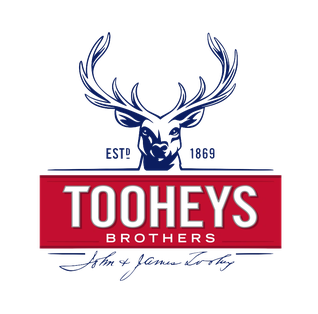
Tooheys is a brewery in the suburb of Lidcombe, in Sydney, New South Wales, Australia. It produces beers and ciders under the Tooheys and Hahn Brewery trademarks, and is part of the Lion beverages group which was acquired by the Japanese Kirin Company in 2009.

Australian constitutional law is the area of the law of Australia relating to the interpretation and application of the Constitution of Australia. Several major doctrines of Australian constitutional law have developed.
Section 51(i) of the Australian Constitution enables the Parliament of Australia to make laws about:

Barley Marketing Board (NSW) v Norman, is a High Court of Australia case that deals with the question of whether State-run marketing boards are permissible under Section 92 of the Constitution of Australia, which deals with the freedom of interstate trade and commerce.

Dennis Hotels Pty Ltd v Victoria, is a High Court of Australia case that deals with section 90 of the Australian Constitution, which prohibits States from levying customs or excise duties. Although some of the judges used the now-discredited criterion of liability approach, this case remains authority for cases that are factually similar to it.

Dickenson's Arcade Pty Ltd v Tasmania, also known as the Tobacco Tax case is a High Court of Australia case that dealt with section 90 of the Australian Constitution.

Hematite Petroleum Pty Ltd v Victoria, is a High Court of Australia case that deals with section 90 of the Australian Constitution.

Ha v New South Wales is a High Court of Australia case that dealt with section 90 of the Australian Constitution, which prohibits States from levying excise.

Australian Tape Manufacturers Association Ltd v Commonwealth, is a High Court of Australia case that provides guidance as to the constitutional definition of a tax.

Nationwide News Pty Ltd v Wills is a High Court of Australia case that deals with a number of issues regarding the Australian Constitution, including the Express right free interstate trade and commerce, the implied freedom of political communication, and the role of proportionality.

Bank of New South Wales v The Commonwealth, also known as the Bank Nationalisation Case, is a decision of the High Court of Australia that dealt with the constitutional requirements for property to be acquired on "just terms", and for interstate trade and commerce to be free. The High Court applied an 'individual rights' theory to the freedom of interstate trade and commerce that lasted until 1988, when it was overturned in favour a 'free trade' interpretation in Cole v Whitfield.
An interlocutory injunction is a court order to compel or prevent a party from doing certain acts pending the final determination of the case. It is an order made at an interim stage during the trial, and is usually issued to maintain the status quo until judgment can be made.

Australian National Airways Pty Ltd v Commonwealth - most commonly known as Australian National Airways Pty Ltd v Commonwealth and also referred to as The Airlines Case or the ANA Case - was a High Court of Australia decision. The case dealt with limits of the powers of the Australian Federal Government under sections 51 and 92 of the Australian Constitution. The outcome of the case was that the Federal Government could found a federally owned airline, but it could not hinder private sector competition with that airline.

Roxborough v Rothmans of Pall Mall Australia Ltd is an Australian unjust enrichment law case, concerning to what extent enrichment of the defendant must be at the expense of the claimant.
Section 90 of the Constitution of Australia prohibits the States from imposing customs duties and of excise. The section bars the States from imposing any tax that would be considered to be of a customs or excise nature. While customs duties are easy to determine, the status of excise, as summarised in Ha v New South Wales, is that it consists of "taxes on the production, manufacture, sale or distribution of goods, whether of foreign or domestic origin." This effectively means that States are unable to impose sales taxes.
Betfair Australia is the Australian operation of the web betting exchange, Betfair. Established in 2005, Betfair Australia operates Australia’s only betting exchange under a Tasmanian Gaming Licence. Since August 2014 Betfair Australia has been fully owned by Crown Resorts.





